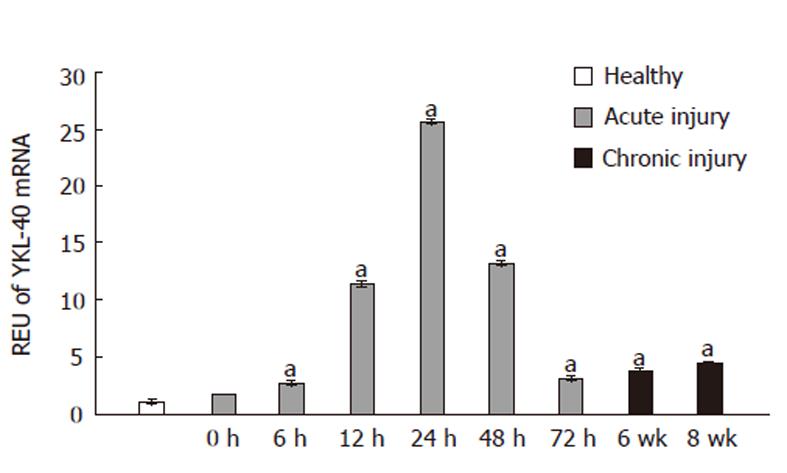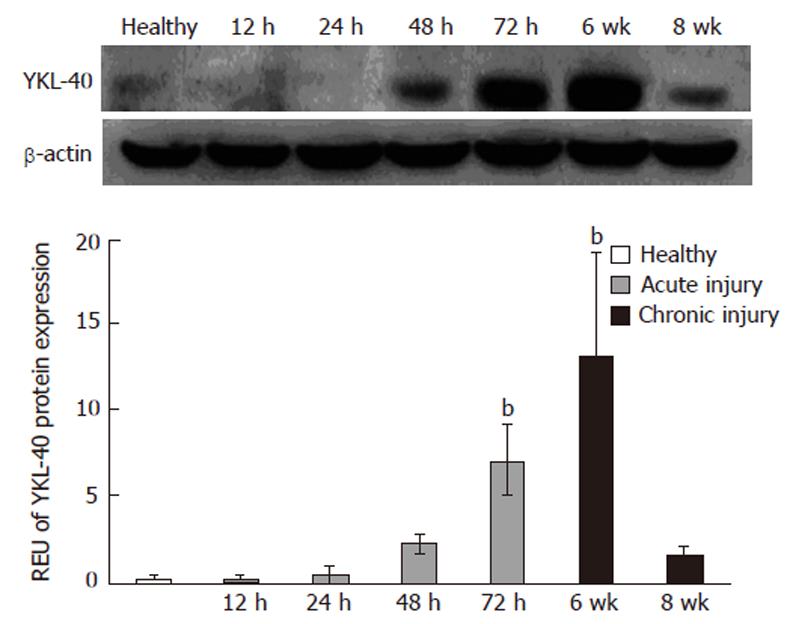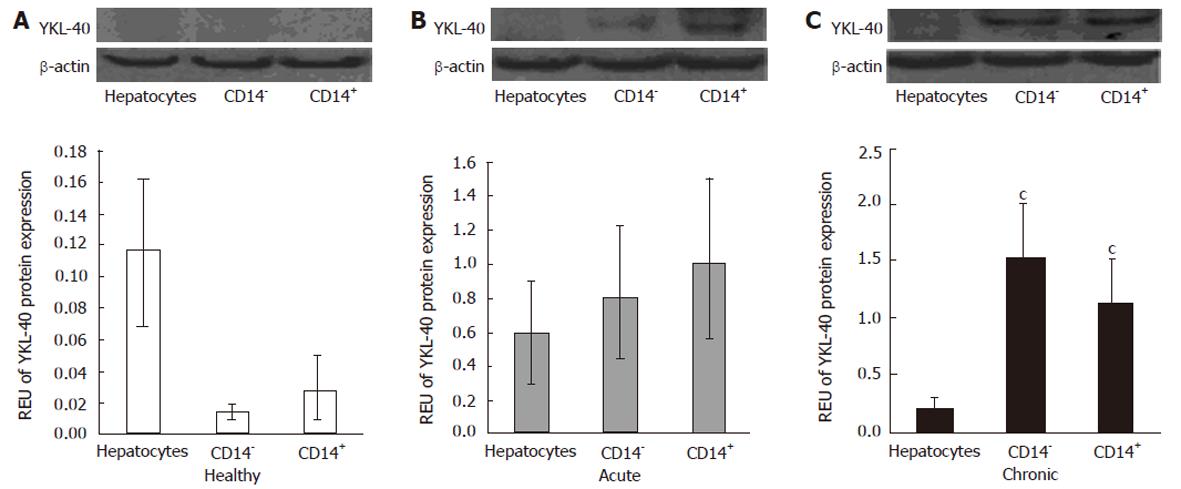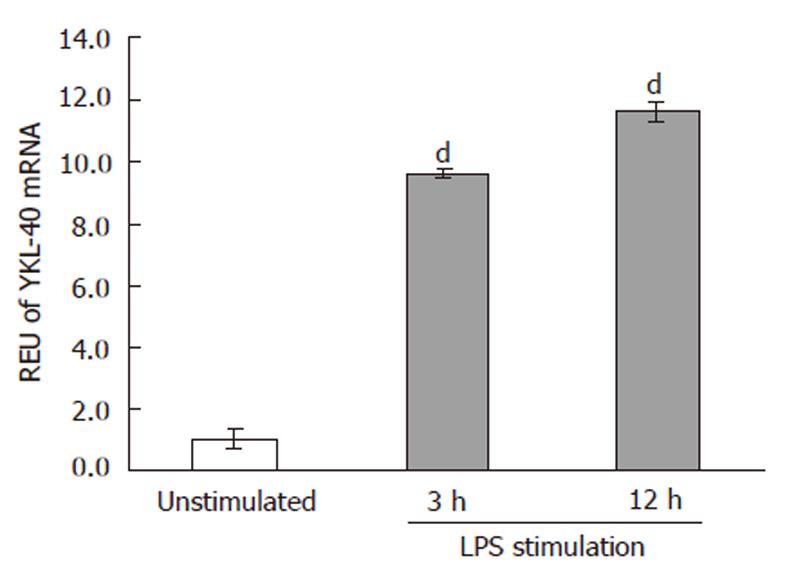Copyright
©2011 Baishideng Publishing Group Co.
World J Gastroenterol. Sep 7, 2011; 17(33): 3830-3835
Published online Sep 7, 2011. doi: 10.3748/wjg.v17.i33.3830
Published online Sep 7, 2011. doi: 10.3748/wjg.v17.i33.3830
Figure 1 YKL-40 mRNA expression in whole liver tissue samples with acute and chronic injuries induced by CCl4.
After acute injury, YKL-40 mRNA increased in a gradual and constant pattern and then fell to control levels. The maximum 26-fold increase was reached at 24 h in the acute damage model. For the chronic injury model, at 6 and 8 wk, YKL-40 mRNA levels were increased 7- and 9-fold compared to controls, respectively. aP≤ 0.05. REU: Relative expression units.
Figure 2 YKL-40 protein levels show a gradual increase.
The maximum peak was at 72 h in the acute damage model and 6 wk in the chronic injury model, with 2.01 and 6.35-fold increases, respectively. bP≤ 0.05 respect to the control group. REU: Relative expression units.
Figure 3 YKL-40 protein expression in cellular populations isolated from liver tissue.
A: In healthy livers, expression of YKL-40 protein was lower in CD14+ and CD14- subpopulations. B: In cells from livers exposed to acute damage, YKL-40 protein levels were higher in CD14+ cells. C: In the chronic injury model, hepatocytes showed low levels of YKL-40, with significant difference between CD14+ and CD14- cells against hepatocytes (cP < 0.05). REU: Relative expression units.
Figure 4 YKL-40 mRNA expression was induced by lipopolysaccharide in cell culture.
After 3 and 12 h of stimulation with lipopolysaccharide, YKL-40 mRNA levels were increased by 9- and 11-fold, respectively, in a rat alveolar macrophage cell line (dP < 0.05). Unstimulated cells were used as controls. REU: Relative expression units. LPS: Lipopolysaccharide.
- Citation: Pizano-Martínez O, Yañez-Sánchez I, Alatorre-Carranza P, Miranda-Díaz A, Ortiz-Lazareno PC, García-Iglesias T, Daneri-Navarro A, Mercado MVD, Fafutis-Morris M, Delgado-Rizo V. YKL-40 expression in CD14+ liver cells in acute and chronic injury. World J Gastroenterol 2011; 17(33): 3830-3835
- URL: https://www.wjgnet.com/1007-9327/full/v17/i33/3830.htm
- DOI: https://dx.doi.org/10.3748/wjg.v17.i33.3830












